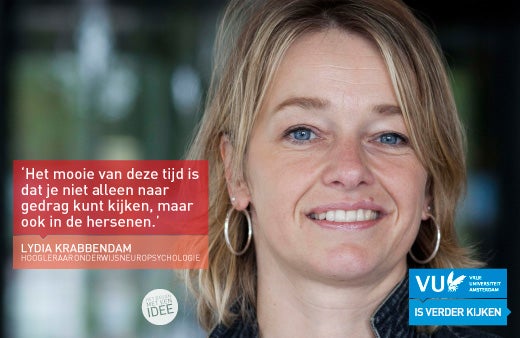Are you the same person at work as you are at home? Probably not. You switch between different mindsets, just like everyone else. All kinds of stimuli determine these changes; they happen unconsciously. you may be the boss at work, but not at home. And the culture a child lives in at home can be very different to the culture they encounter at school. If this switch between one culture and another works smoothly, it doesn’t seem like anything very special. But it can have wider implications: on average boys perform slightly better than girls in science subjects. The figures suggest a consistent difference in natural talent that we can do nothing about. But in the Netherlands, this difference between the sexes is greater than in other countries. And in countries like Tunisia, Kuwait, Russia and Kazakhstan it’s the girls who come out on top. Could it be that ideas communicated by teachers and parents about what boys and girls are capable of play a role here? In other words, is it all in our mindset? Can we do something about this difference after all? The mindset is an intriguing phenomenon. Professor of Educational Neuropsychology Lydia Krabbendam unwittingly presents a perfect example of one during our interview: “I can only offer you girlie tea,” she tells me apologetically, referring to the rooibos and mint teabags in the box on her desk. They are certainly not my favourite flavours, even though I could be considered a “girlie”. But then in some circles it’s seen as odd if men drink tea at all. Everyone has mindsets, often beyond their control.
Interview with Lydia Krabbendam
It may be an alarming prospect, but the culture in which you grow up probably affects how your brain develops. It’s a theme that Lydia Krabbendam has dared to take on. For example, girls in the Netherlands are worse than boys at science, but in Kuwait they are better. It’s all a matter of mindsets. So how can we learn to control them?
